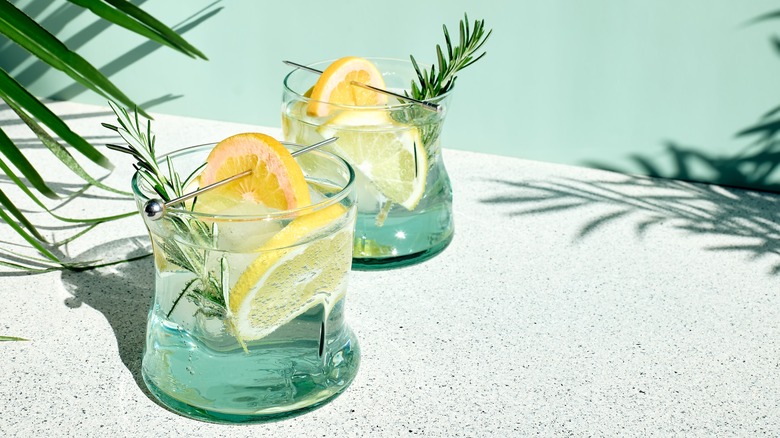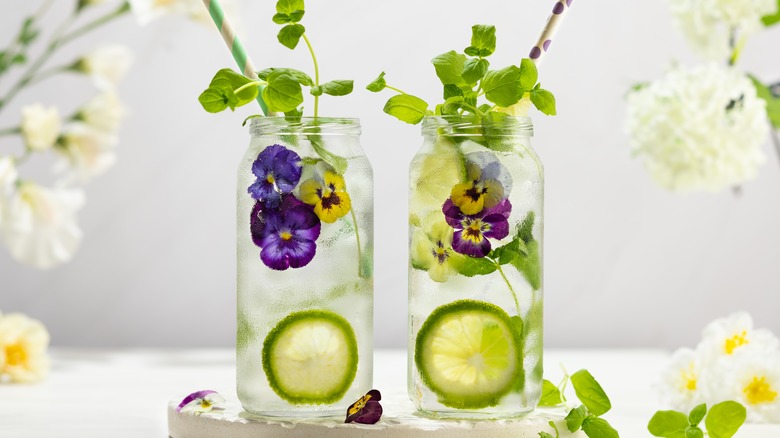The Reason Lemons Float And Limes Sink In Drinks
If you've ever ordered a gin fizz cocktail and a margarita, you may have noticed a glaring difference between the two. Forget the different types of alcohol, foamy vs. salty ingredients, and varying bright colors of the drinks — one of the most poignant distinctions between these cocktails is that the lemon slices in a gin fizz are typically floating, while the limes in a margarita sink to the bottom. This doesn't just apply to alcoholic beverages, however — if you've ever ordered a glass of sparkling water with lemons and limes, you'll notice that the lemons are bobbing on the top of the drink, unlike the limes.
It doesn't matter how you prepare your citrus – if lemons and limes are sliced, peeled, or dropped in a drink whole, they'll behave in the same way. This is surprising because limes are typically smaller than lemons. On average, limes are up to two inches in diameter, while lemons are twice that size. So why do the smaller fruits sink to the bottom of a drink while larger ones float on the top?
Limes are denser than lemons
Even though limes are usually smaller than lemons, the reason they sink comes down to their density compared to lemons. Limes are a little denser than lemons — not by much, but the difference is just enough to cause them to sink in liquid. According to the United States Department of Agriculture, 87.4% of a lemon's weight is made up of its water content, while a lime's weight is 88.26% water.
You can use the density formula to calculate the density needed for a fruit to float in water. If you don't remember this from school (and you wouldn't be alone), the formula is simple: Divide a fruit's weight by its volume to get the overall density. According to Steve Spangler Amazing Science Experiences, who did take the time to calculate this out, a lime is only .1 g/ml denser than a lemon.
Considering the similarities between the two citrus fruits, it's not a huge surprise that their densities are so close together. Both are rich in vitamin C, antioxidants, flavonoids, and citric acid — and their sour taste makes them great substitutes for each other in recipes. But if you want to see who will truly sink or swim, just throw them in a cup of water and watch lemons rise to the occasion.

